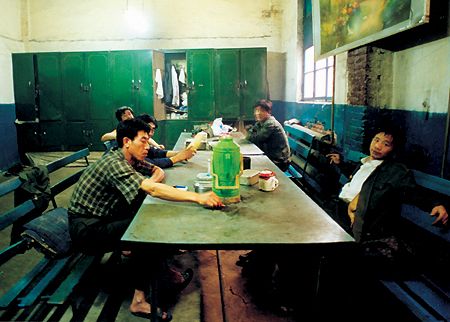Long Night of Films: Tie Xi Qu - West of Tracks (Trilogy)
D: Wang Bing
Phantom Heroes

China 1999-2003, 615 min., English subtitles
In his trilogy, Director Wang Bing comments quite candidly on the effects that China’s rush into modernity has had on the people living there: From the 1950s until quite recently, Region Tie Xi in the northeast of China was one of the largest and most diversified industrial locations in the country. Over one hundred factories employed more than one million workers. However, in the early 1990s, decline set in: factories were closed and thousands of people were laid off. In the year 2000, the factories were demolished. This documentary is divided into three parts: Rust (240 min.), Remnants (175 min.) and Rails (130 min.).
Rust concentrates on the life and workaday world of the workers in three of the state-run factories that face economic ruin. Impending bankruptcy, accompanied by waves of dismissals, tears the ground away from under the workers’ feet, leaving them facing a completely uncertain future. Remnants follows a group of young people in the “Street of the Rainbow”, which the authorities plan to demolish. The film shows their attempts to live their lives, their love lives and face their plight, with the immanent destruction of their environment looming over them. Rails tells the story of the old freight trains which link the district’s factories with one another, which have now been shut-down. The film focuses on a father and his son who do little jobs here and there to keep their heads above water. Whilst the two of them now live from stealing coal, the workers employed by the railway company continue doing their – now meaningless – jobs.
Phantom Heroes
Once national heroes, they are now remnants from the past, as the country moves along the path to becoming a ‘controlled democracy’. They are the working people: rural workers opposing the destructive exploitation of the countryside in the Tibetan mountains and factory workers who have lost their jobs and consequently the basis of their entire existence in the wake of the great transformations.